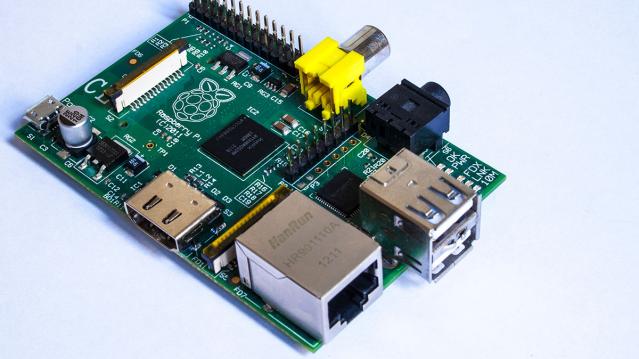This Computer Only Costs $9

It's smaller than a credit card yet powerful enough to act like a super cheap PC. How cheap? It costs less than $10.
C.H.I.P. is a micro-computer that allows you to surf the Web, check email over Wi-Fi and play games with a Bluetooth controller. The minicomputer—basically a chip that hooks up to an external monitor—has a 1 GHz processor, 4GBs of storage and 512MB of RAM, according to its Kickstarter page.
The Next Thing Co., a company based in Oakland, Calif., began a Kickstarter campaign for the C.H.I.P. computer in May with a funding goal of $50,000.
Related: 10 Biggest Tech Flops of the Century
It has since blown past that goal, and by a large factor. The campaign has brought in just under $690,000 and counting as of Monday morning. The fundraising campaign ends June 6.
The small computer is designed for a mass audience, including students, teachers, grandparents, children, artists, makers, hackers and inventors, according to its Kickstarter page.
Raspberry Pi is another full-functioning, no-frills computer. Like C.H.I.P., the Raspberry Pi is basically a computer chip that plugs into a computer monitor or TV. It costs $35 and uses a standard keyboard and mouse.
Raspberry Pi teaches users how to program in languages like Scratch and Python.
This article originally appeared on CNBC.
Read more from CNBC:
Reward checking accounts offer savers up to 5% APY
Has Krugman been proved wrong on austerity?
How the 2014 CNBC Disruptors cashed in
Chart of the Day: Long Way to Go on Coronavirus Testing

The White House on Friday unveiled plans for a new effort to ramp up testing for Covid-19, which experts say is an essential part of limiting the spread of the virus. This chart from Vox gives a sense of just how far the U.S. has to go to catch up to other countries that are dealing with the pandemic, including South Korea, the leading virus screener with 3,692 tests per million people. The U.S., by comparison, has done about 23 tests per million people as of March 12.
After Spending $2 Billion, Air Force Bails Out on Planned Upgrades of B-2 Bombers

The Air Force has scrapped a planned upgrade of its B-2 stealth bomber fleet — even after spending $2 billion on the effort — because defense contractor Northrup Grumman didn’t have the necessary software expertise to complete the project on time and on budget, Bloomberg’s Anthony Capaccio reports, citing the Pentagon’s chief weapons buyer.
Ellen Lord, the undersecretary of defense for acquisition and sustainment, told reporters that the nearly $2 billion that had already been spent on the program wasn’t wasted because “we are still going to get upgraded electronic displays.”
Big Hurdle for Sanders’ Plan to Cancel Student Debt

Bernie Sanders wants to eliminate $1.6 trillion in student debt, to be paid for by a tax on financial transactions, but doing so won’t be easy, says Josh Mitchell of The Wall Street Journal.
The main problem for Sanders is that most Americans don’t support the plan, with 57% of respondents in a poll last fall saying they oppose the idea of canceling all student debt. And the politics are particularly thorny for Sanders as he prepares for a likely general election run, Mitchell says: “Among the strongest opponents are groups Democrats hope to peel away from President Trump: Rust Belt voters, independents, whites, men and voters in rural areas.”
Number of the Day: $7 Million

That’s how much Michael Bloomberg is spending per day in his pursuit of the Democratic presidential nomination, according to new monthly filings with the Federal Election Commission. “In January alone, Bloomberg dropped more than $220 million on his free-spending presidential campaign,” The Hill says. “That breaks down to about $7.1 million a day, $300,000 an hour or $5,000 per minute.”

